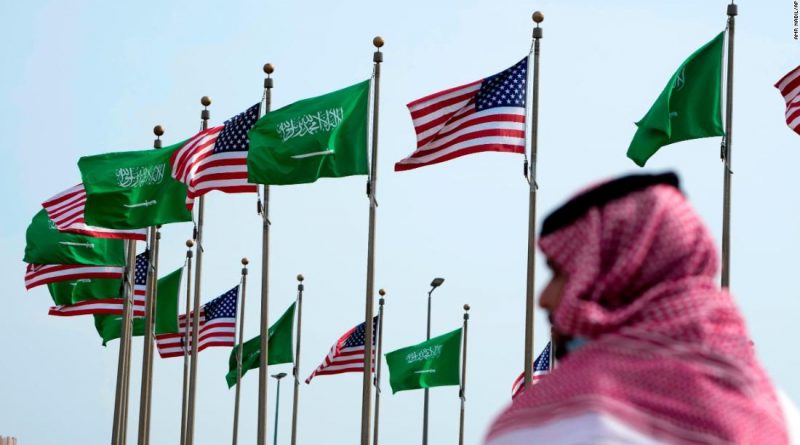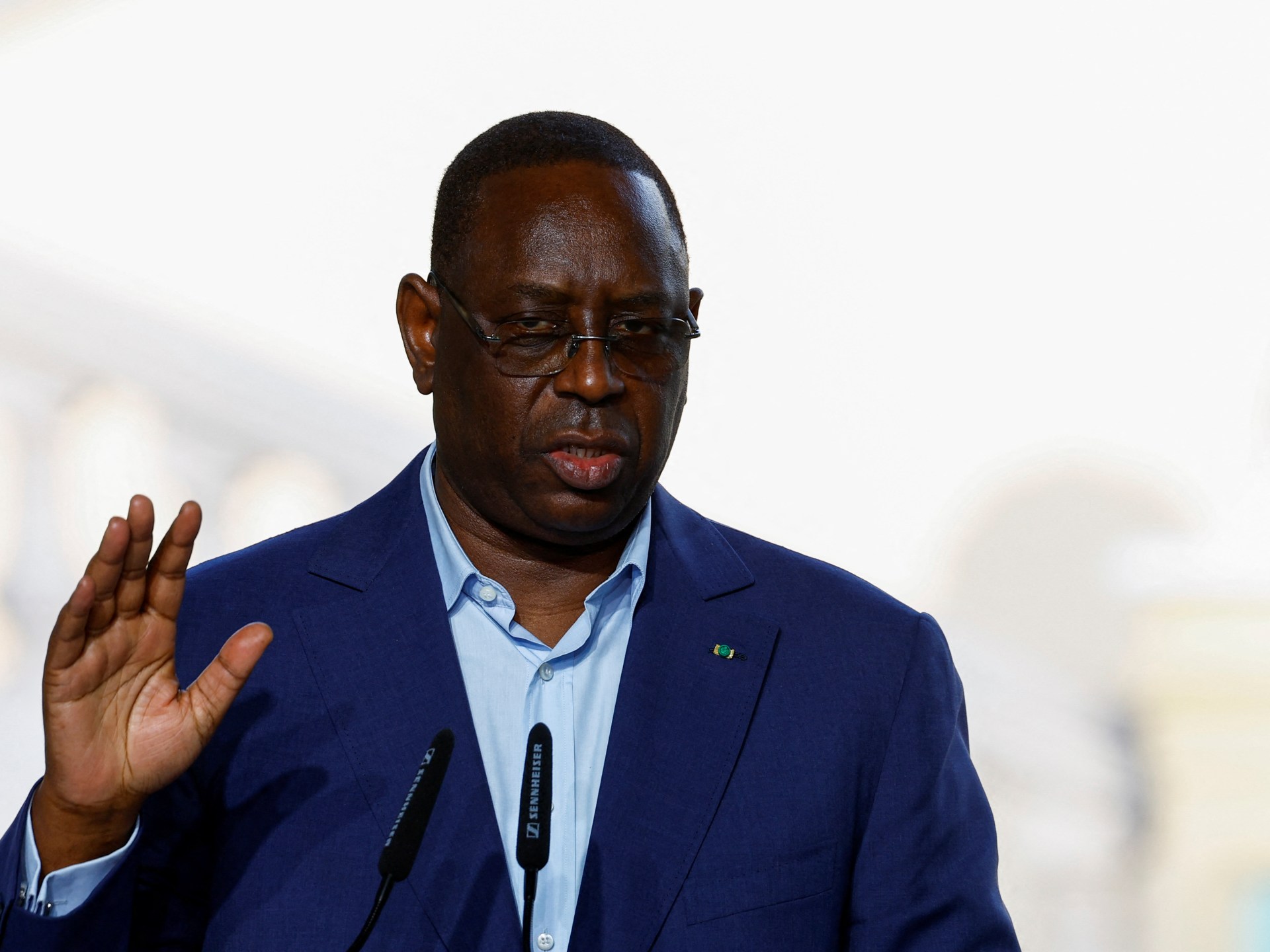A ‘Middle East NATO’? Why Iran is closely watching Biden’s regional trip
Last month, US lawmakers introduced legislation to create an integrated air defense system to increase cooperation between Israel and its Arab neighbors, including the countries whose leaders Biden will meet in Saudi Arabia this week. The defense system is aimed to protect those states from Iran.
The United Arab Emirates, which has been engaging in direct talks with Tehran , said on Friday that it has no interest in joining an anti-Iran alliance.
“We are open to cooperation, but not cooperation targeted at any other country in the region, and I specifically mention Iran,” Anwar Gargash, adviser to the UAE president, told CNN’s Becky Anderson. The UAE is in the process of sending an ambassador to Tehran, he added.
Some analysts say that if Iran finds itself being ganged up on by its neighbors, it may retaliate.
An Arab-Israeli military alliance is “a terrible idea,” said Trita Parsi, vice-president of the Quincy Institute in Washington, DC, “because it cements existing divisions in the region and reduces the likelihood of diplomatic breakthroughs.” Such groupings are aimed at organizing the region against a certain state instead of achieving “true peace,” Parsi told CNN.
Previous American attempts at isolating Iran at the behest of Israel led Tehran to sabotage the Palestinian-Israeli peace process to undermine Washington’s efforts, he said. “If Biden’s anti-Iran alliance truly takes hold, it may prompt Iran to go back to its policies of the 1990s when it actively pushed its allies to destabilize parts of the region,” he added.
“There is potential that [Biden’s] visit could create further tensions,” Mohammad Marandi, a professor at the University of Tehran, told CNN.
Gargash told CNN that there is a need to de-escalate with Iran. “We have to find solutions, and we have also to use economic cooperation in various areas,” he said.
Abdulkhaleq Abdulla, a political science professor in the UAE, told CNN that framing a potential military alliance as regional NATO is “very provocative, and I don’t think it is acceptable to whoever is asked to join.”
While there is regional consensus that Iran is now more destabilizing than ever, Israel and the Gulf Arab states differ on how to approach the problem, he told CNN.
“There is plenty of Israeli propaganda that goes into marketing and promoting such a deal,” said Abdulla. “Logistically, it is not very easy to do.”
The digest
Majority of Saudi youth see Palestinian cause as a priority, survey finds
Three-quarters of Saudi youth believe addressing the Palestinian-Israeli conflict should be a priority for the Arab world, according to the 13th edition of the Arab Youth Survey. The survey also found that over 90% of Saudi youth, who form nearly two-thirds of the country’s population, see the US as an ally.
- Background: The findings were announced on Thursday ahead of Biden’s trip to Saudi Arabia. The survey comes amid strained US-Saudi ties and an effort by the Biden administration to strengthen relations between Israel and Saudi Arabia.
- Why it matters: The survey shows the importance Saudi youth attach to the Palestinian issue as Riyadh moves closer to Israel. It also suggests that despite the tensions between the Biden administration and Saudi Arabia, Saudi youths continue to see the US as an ally.
Netanyahu says Biden agrees a military strike will be necessary if Iran develops nuclear weapons
Israel’s former Prime Minister Benjamin Netanyahu on Thursday suggested that President Biden agrees that a military strike on Iran will be needed if Tehran develops nuclear weapons. “I told him that without a credible military option, Iran cannot be stopped, and if Iran is not deterred, this military option will need to be carried out. This is my position. I really hope it is also the American position,” said Netanyahu. “He [Biden] said he agrees with these words, and I was glad to hear it,” he added.
- Background: Netanyahu’s claim comes as he tries to make a comeback as prime minister amid a political deadlock in Israel. During his trip to Jerusalem, Biden renewed his pledge to defend Israel against Iran. In an interview with Israel’s Channel 12 News on Wednesday, the President was asked if his commitment to ensure Iran never acquired nuclear weapons meant he would use force against Iran. “If that was the last resort, yes,” Biden answered.
- Why it matters: Israel has been touting a “regional air defense alliance” led by the US, and which would predominantly be aimed at thwarting Iranian drones and missiles. Biden has defended his trip to Middle East, saying regional allies are needed as Iran makes progress in its nuclear program.
White House confirms Biden will meet with MBS without the Saudi king present
The White House on Friday confirmed for the first time that Biden will meet with Saudi Crown Prince Mohammed bin Salman — known as MBS — without his father King Salman present while the US President is in Jeddah.
- Background: According to Biden’s schedule, the Saudi king will only be present for about 30 minutes during the bilateral meetings Friday night. This is the first time the White House has acknowledged it publicly. Biden and the crown prince will continue their meeting after the king departs.
- Why it matters: The meeting would be a turnabout from Biden’s earlier attempt to shun MBS. The White House said early in Biden’s presidency that the President’s interactions with the Saudi leadership would be “counterpart-to-counterpart.”
What to watch
Lina Au Akleh, the niece of slain Palestinian-American journalist Shireen Abu Akleh, told CNN’s Becky Anderson how her family feels about Biden’s regional tour as it continues to grieve.
“This is where Shireen was born … and she was killed here,” Abu Akleh said. “So it was very important for us to be able to sit with the President himself, to hear our demands.”
Watch the interview here:
Around the region
Some Iranian women are defying their country’s state-enforced veil, saying they want to let their hair down and dress freely.
Social media platforms have this week seen a barrage of posts showing Iranian women inside and outside the country taking off their head coverings in public in defiance of the Islamic Republic’s strict laws on morality.
Beginning with an activist campaign against Iran’s “National Day of Hijab and Chastity,” which is observed by the Persian Gulf state every July 12 to promote the veil, the call to do away with the head covering has spread across social media.
Women in Iran are obliged to cover their hair with a veil, as well as wear loose-fitting garments to hide their body shapes.
By Nadeen Ebrahim




